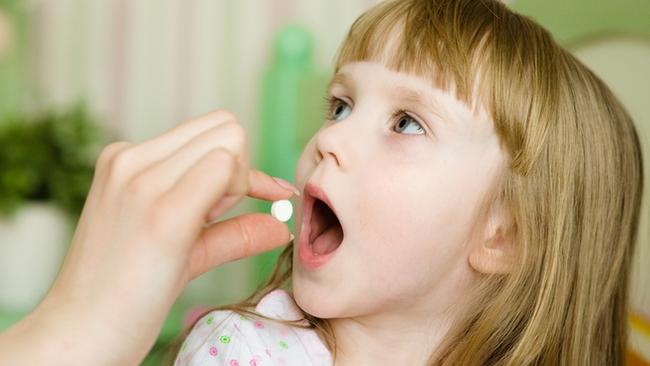Surely there are better ways to help ‘depressed’ kids than giving them pills
THE alarming number of children being prescribed antidepressants should be a wake-up call to us all, writes Anthony Dillon. Skills, not pills will help our kids.

Rendezview
Don't miss out on the headlines from Rendezview. Followed categories will be added to My News.
BOTH the introduction and recent abandonment of the Safe Schools programs have captured the attention of many parents, teachers, and community members.
But with the Safe Schools distraction, another serious problem affecting our children has escaped the attention of many. Consider this recent headline from The West Australian: “WA kids under 7 years old on antidepressants.”
In NSW, data obtained from the Department of Human Services show that in 2015, there were 464 children aged two to six years and 2,971 children aged seven to 11 years who were prescribed antidepressants. For children aged 12 to 16, the figure balloons to more than 12,000.
Use of the term “depression” even for adults has been the source of much controversy among health professionals. But when it comes to our children, I think it requires even greater scrutiny. Perhaps equally disturbing, is the The West Australian article mentions antidepressant medication is used in response to bed-wetting.
At this point I should state I’m not denying some parents have extremely challenging children to parent or are at the point of exhaustion themselves. Let me state upfront these parents need our help, not nasty criticisms.
Childhood is tough and parenting is tougher than it was in past generations.
But is framing some childhood problems as something that is best addressed with psychotropic medication the most effective way to help our children?
Perhaps in some cases where the parents lack the necessary skills and resources in caring for their children, then medication may be an easier option. But before pursuing medication, perhaps we should heed this advice from the Federal Department of Health: “... treatment with antidepressants has been linked with a small increase in the risk of suicidal thinking and behaviour in children.”
I’m not here to tell parents how to parent, as it seems that in the age of experts there is an overabundance of parenting experts already. More about this shortly.
But maybe when it comes to raising happy and healthy children, we should focus more on skills and less on pills, where the skills apply to both the parents and their children.
And let’s not forget about the benefits for children of getting enough sleep, regular exercise, and less sugar in the diet.
Before the parenting experts stepped in with their advice about not saying “No” to your child, forbidding the F word (Fail) or the C word (Competition) because they are presumed to erode a child’s sense of self-worth, parents were generally the parenting experts.
Of course, not every parent was an expert but compared with today’s families, in past generations most children knew that their parents were boss, they knew that “no” meant “no” and that consequences followed inappropriate behaviour.
And the kids respected their parents and felt safe with them.
Fast forward into the new millennium: many of the duties that parents successfully handled in the past have been contracted out to schools with teachers expected to do more and more; immediate gratification has replaced patience; and the opportunity for “hurt feelings” is growing exponentially.

On top of all that, today’s children are expected to master skills at ages much younger than what was expected of their parents when they were at school. Is it possible that what a doctor calls “depression” is actually just a normal response by children to increased demands placed on them?
In Australia, psychiatrists are guided by a book called the Diagnostic and Statistical Manual. We are now at version five.
One of the DSM’s main architects for the fourth version, Allen Frances, states: “As we drift ever more toward the wholesale medicalisation of normality, we lose touch with our strong self-healing capacities — forgetting that most problems are not sicknesses and that only rarely is popping a pill the best solution.”
I can think of few things worse than if we let our children lose their self-healing capacities. Let’s let kids be kids and not be so quick to save them from every discomfort they may encounter. Let them have fun and encourage parents to share in the fun with them.
Medicalising some childhood behaviours and emotional states, in the absence of a clear underlying organic basis, may have its appeal, but I can’t help but agree with Frances in that each time we rely on a pill to “fix” behaviour, we lose an important life skill.
And where there are parents who may be struggling, let’s provide them with support and understanding. Perhaps teaching them the skills that our grandparents used in raising children might be a good place to start.
Dr Anthony Dillon is a lecturer at Australian Catholic University with the Institute for Positive Psychology and Education.
Originally published as Surely there are better ways to help ‘depressed’ kids than giving them pills


